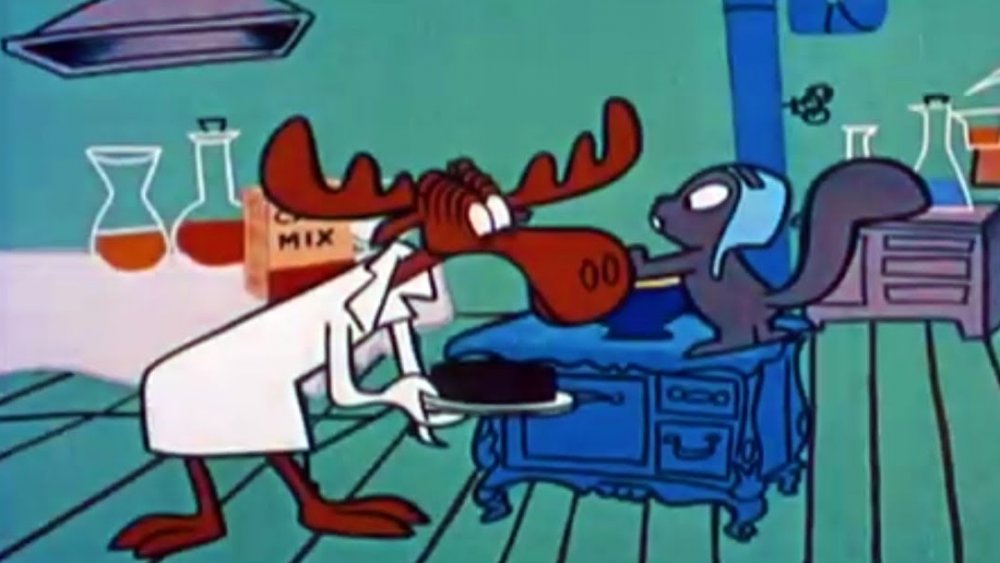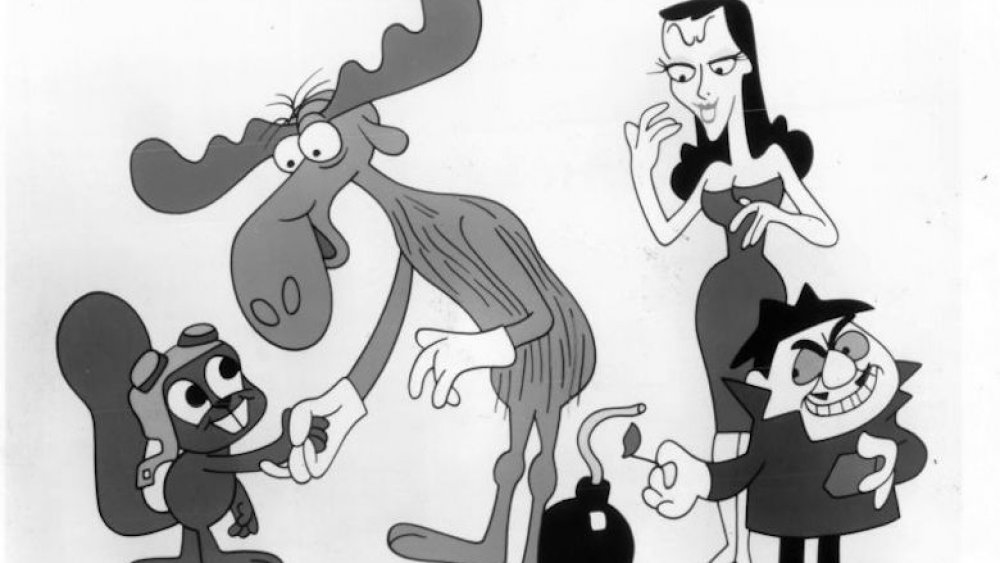What Only Adults Notice About Rocky And Bullwinkle
If you grew up in the sixties and seventies, you probably watched The Adventures of Rocky and Bullwinkle and Friends every Saturday morning. The animated series featuring the quirky duo of a moose and a flying squirrel ran on ABC and NBC from 1959 to 1964, and later was a staple of the Saturday morning cartoon lineup. The show has captured the hearts of many generations of viewers, and in 2013, TV Guide even named it the sixth greatest TV cartoon of all time. Rocky was the brains, and Bullwinkle brought the audience jokes, but as pointed out by the Smithsonian Magazine, the show paved the way for future animated trendsetters like The Simpsons, and Spongebob Squarepants.
However, if you rewatch the beloved series as an adult, you'll definitely notice some grown-up themes that went over your head as a kid. Rocky and Bullwinkle captured the perfect amount of social and political satire, mixed in with wry humor. The show's genre was actually a variety show, rather than a simple cartoon, and rewatching any episode makes that clear.
Cold War comical relief
The show poked fun at the military, college football, the federal government, and even the Cold War.
"What we didn't know in the '70s, when we were watching, that this was pretty subversive stuff for a children's program made at the height of the Cold War," wrote Beth Daniels in the Smithsonian Magazine. "Watching this dumb moose and his rodent pal continually prevail against well-funded human saboteurs gave me pause to consider, even as a kid, that perhaps it is a silly idea to believe that just because we're the good guys we should always expect to win."
The show's antagonists, Boris and Natasha, were plays on Russian characters, during a time when the Cold War was a real threat. Boris Badenov is actually a pun for the real-life 16th-century Russian Tsar Boris Godunov. Both characters take orders from a dictator called Fearless Leader, whose character wears a German-style military uniform. By basing these outlandish characters around Russia and Nazi Germany, the show's creators were trying to bring a sense of humor to an otherwise tense moment in time — and given how the series lives on in the memories of those who watched it, they seem to have succeeded.

